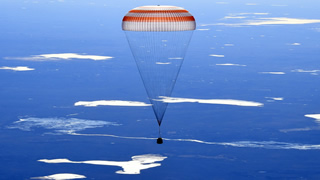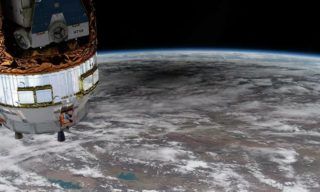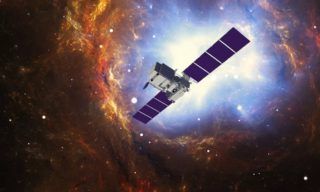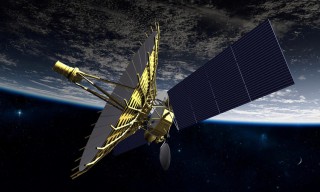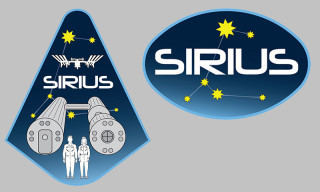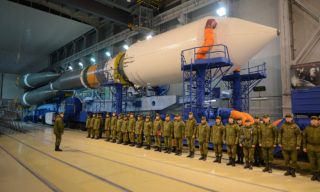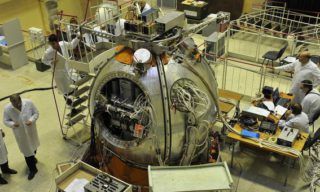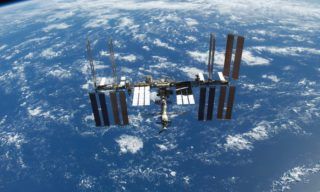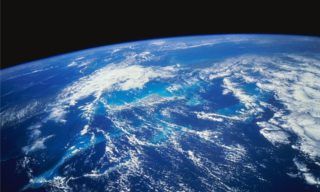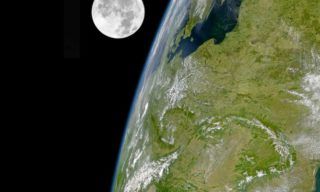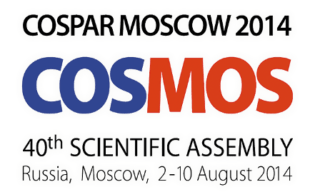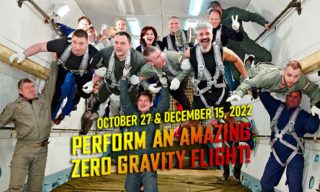-
This error message is only visible to WordPress admins
Error: API requests are being delayed. New posts will not be retrieved.
There may be an issue with the Instagram access token that you are using. Your server might also be unable to connect to Instagram at this time.
Error: API requests are being delayed for this account. New posts will not be retrieved.
There may be an issue with the Instagram access token that you are using. Your server might also be unable to connect to Instagram at this time.
Categories
- Academy of Science (20)
- Alexey Leonov (10)
- Android (4)
- Angara (41)
- Asteroid (7)
- Astronomy (8)
- ATV (12)
- Baikonur spaceport (511)
- BION-M (1)
- Brazil (1)
- Buran (2)
- Challenge (5)
- COSPAR (3)
- CrewDragon (2)
- CubeSat (1)
- Cygnus (4)
- Defenсe (47)
- Dnepr (6)
- Dragon (2)
- Earth (11)
- Electro-L (1)
- Energomash (1)
- ESA (116)
- ExoMars (10)
- Express-AM (28)
- Falcon (2)
- Featured article (10)
- Fregat (33)
- GCTC (209)
- Glonass (33)
- Google X Prize (1)
- History (58)
- HTV (1)
- IBMP (6)
- India (1)
- Inmarsat (11)
- Institute of Biomedical problems (2)
- ISS (526)
- JAXA (49)
- Johnson Space Center (3)
- Kapustin Yar (2)
- Khrunichev (63)
- Kourou spaceport (15)
- Kurchatov institute (1)
- Kuznetsov (2)
- Lavochkin (12)
- MAKS (4)
- MAKS 2021 (1)
- Mars (7)
- Mars Desert Research Station (1)
- MCC (84)
- Moon (18)
- NASA (197)
- Nauka module (7)
- NK-33 (2)
- Nuclear battery (2)
- Oka-T (1)
- Olympic torch (13)
- OneWeb (7)
- Orbital Sciences Corporation (3)
- Plesetsk spaceport (82)
- Progress (226)
- Proton (137)
- Reshetnev (13)
- Resource-P (4)
- Rokot (15)
- Rosatom (2)
- Roscosmos (621)
- RSC Energia (93)
- Russia (698)
- Satellites (218)
- Science (129)
- SIRIUS (2)
- Soyuz (542)
- Soyuz-2.1b (1)
- Space (463)
- Spacewalk (72)
- SpaceX (3)
- Star city (60)
- Sygnus (2)
- Tereshkova (6)
- Tourism (27)
- TSNIIMASH (4)
- URSC (1)
- USA (62)
- Valentina Tereshkova (4)
- Valeri Kubasov (2)
- Voskhod (2)
- Vostochny spaceport (62)
- Voyevoda (2)
- Yasny launch base (2)
- Zenit (3)
- Zero Gravity (12)
- Zvezda Enterprise (3)
Category : Academy of Science
November 27, 2020
A series of ISS elements is already damaged, there will be a numerous breakdowns starting from 2025, thut it makes sense to focus on national tation development, RSC Energia Deputy Director Vladimir Solovyov stated. Russia needs to review the terms and conditions of participation in the project and focus on national space programs implementation, - the source suggests.
full storyJuly 10, 2020
Gamma-400 astrophysical space observatory designed to study gamma-ray sources in the Universe is to be launched by Angara booster from Vostochny launchsite. Gamma-400 observatory is designed to study the nature of dark matter in the Universe, to develop high-energy cosmic rays origin theory and elementary particle physics, to explore cosmic gamma-rays within high-energy and X-rays range as well as to track cosmic rays charged particles and gamma-ray bursts.
full storyJanuary 18, 2019
Specialists of Roscosmos State Corporation will continue their attempts to reconnect with the "Spectrum-R" spaceunit. In case the communication cannot be established via the command line, the procedure for completing the work with the "Spectrum-R" , which has worked in the interests of the scientific community 2.5 times longer than the planned period, will be considered in the established order. The Roscosmos State Corporation, together with the Russian Academy of Sciences, continue to work on the creation of new spaceunits of the "Spectrum" series for further study of the Universe.
full storyOctober 22, 2018
October 19, 2018 The RSC Energia specialists will take part in a number of scientific research conducted by the Russian Institute of Biomedical problems. SIRIUS (Scientific International Research In Unique Terrestrial Station) is an experiment which is now conducted to prepare for deep-space flights and primarily to the near-lunar station. The research participants will spend from 17 days up to one year isolated in the experimental ground complex of the Institute of Biomedical problems.
full storyJune 18, 2018
On June 17, 2018 at 00:46 (Moscow time) from the State Test Cosmodrome “Plesetsk” military crew of the Russian Space Forces launched a space rocket , that include a “Soyuz-2.1b” launch vehicle, the “Fregat” booster block and “Glonass-M” Russian navigation spacecraft. The launch was conducted under the general supervision of the commander of the Space Forces, the deputy commander-in-chief of the Air and Space Forces, Colonel- General Alexander Golovko. The launch of the launch vehicle and the launch of the spacecraft into the calculated orbit were held in the regular mode.
full storyJuly 10, 2015
Roscosmos has concluded a contract with Progress rocket and space centre for Bion-M2 space device project. With the help of this device Russian scientists are going to study zero-gravity and space radiation impact on living organisms, - Institute for Bio-Medical Problems press office reports.
full storyNovember 20, 2014
Vice President of the Russian Academy of Sciences Lev Zelyony stated that Russia and the United States have no plans to end joint scientific experiments on board the International Space Station.
full storyAugust 11, 2014
The launch of four Rezonans satellites aimed at Earth’s radiation belt exploration is planned for 2017-2018, - Doctor of Physical and Mathematical Sciences Anatoly Petrukovich working for the Institute of Space Explorations of Russian Academy of Sciences reported at COSPAR conference held in Moscow.
full storyAugust 4, 2014
"An estimated cost of one project aimed at the development of an automatic lunar station is 10 billion rubles (about $280 million). The project is to be completed in five or six years. The manned lunar mission will cost ten times more"
full storyJuly 11, 2014
Moscow is going to host Cospar Assembly from August 2 to August 10, 2014. ore than 2,5 thousand scientists, students and postgraduates of more than 60 universities are expected to take part in it.
full storyPages :

